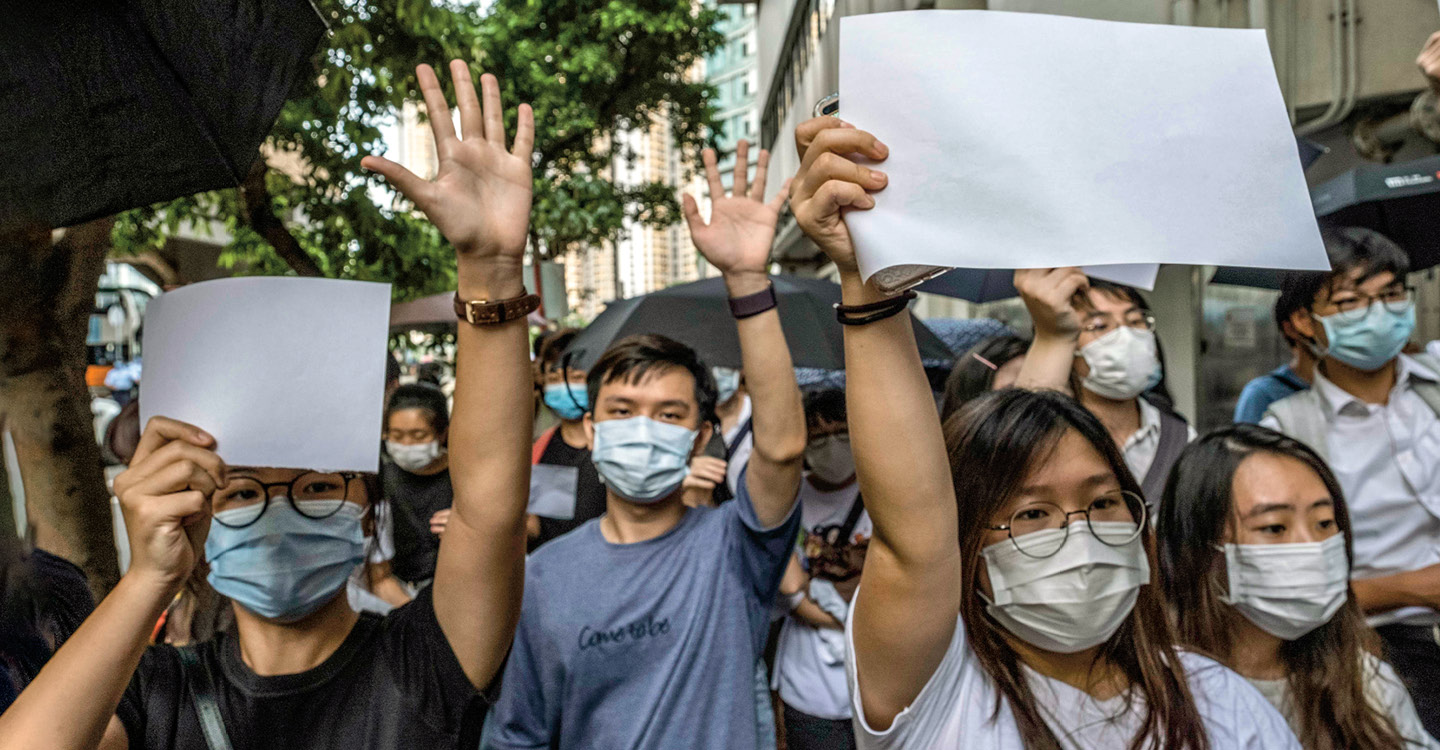The day after China imposed a harsh new security law on Hong Kong, Joshua Wong, the 23-year-old who is the city’s best-known democracy activist, disbanded the youth political group he co-founded in 2016. Wong said he was afraid for his safety.
“From now on, #Hongkong enters a new era of reign of terror,” Wong tweeted.
It was just one of the many ways that the new law, which was passed in June, reverberated across Hong Kong. Books written by prominent activists were removed from the city’s public library system. Pro-democracy posters that had covered the walls of many businesses vanished, taken down by owners suddenly fearful of being thrown in jail. And within days of the law’s passage, 10 people were arrested and charged under the new law, including a 15-year-old girl who was waving a Hong Kong independence flag in public.
In June, China put in place a harsh new security law in Hong Kong. The next day, 23-year-old Joshua Wong ended the youth political group he co-founded in 2016. Wong, who is the city’s best-known democracy activist, said he was afraid for his safety.
“From now on, #Hongkong enters a new era of reign of terror,” Wong tweeted.
It was just one of the many ways that the new law echoed across Hong Kong. Books written by prominent activists were removed from the city’s public library system. Pro-democracy posters that had covered the walls of many businesses disappeared. They had been taken down by owners suddenly fearful of being thrown in jail. And within days of the law’s passage, 10 people were arrested and charged under the new law. One of them was a 15-year-old girl who was waving a Hong Kong independence flag in public.

